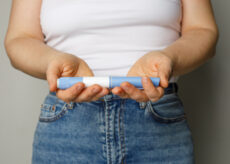10 Ways to Bounce Back After a Bad Night’s Sleep

No matter how devout you are with your sleep routine, or how comfortable and serene your bedroom is, all of us are bound to suffer from a bad night’s sleep from time to time. Whether it’s due to stress; a new (or even not so new) baby, kitten, or puppy; a snoring partner; pain or soreness from an injury; or just drinking a cup of coffee later in the day than usual, sometimes it’s just hard to get, or stay, asleep.
The next morning often comes too soon, and you find yourself crawling out of bed feeling cranky and lethargic, perhaps wishing for a full pot of coffee instead of your usual single cup to help you get on with the day. Stop right there. There are better, healthier ways to get over a bad night’s sleep—ones that will lead to greater energy and vitality throughout the rest of the day. (And that won’t lead to a vicious cycle of feeling exhausted but still not sleeping the next night.)
How to Bounce Back from a Bad Night’s Sleep
1. Avoid Sleeping In
It’s been a rough night, and you really don’t need to get up right away. Why not simply hit the snooze button (or turn it off altogether) and catch up on your ZZZs? Unfortunately, sleeping in—even after a bad night’s sleep—can throw off your circadian rhythms. Plus, those few extra minutes of shut-eye aren’t likely to make you feel any better and could leave you feeling even more dazed and confused.
Instead, stick with your regular sleep and wake schedule as much as possible. If you do need to catch up, head to bed a little early, or get in a 20-minute power nap in the early afternoon (around 1 p.m.).
2. Salute the Sun
Within the first 15 minutes of waking up, head for the light—the sunlight, that is. Basking in direct sunlight during this time can help stop melatonin production, reset your circadian rhythm, boost levels of serotonin, and help you wake up even after a bad night’s sleep. While you’re at it, why not move through some gentle yogic sun salutations as you breathe deeply to welcome in the day? As a bonus, deep breathing can increase oxygen flow, which also boosts energy levels.
3. Walk it Off
You’re already outside and moving your body, so take this time for a short, quick walk. Even a 5- to 10-minute brisk jaunt can get the blood flowing and help revitalize your body. Plus, research has found that low-intensity exercise can decrease the symptoms of fatigue by 65%. And exercise has a well-known mood-boosting effect.
To get the most out of this morning time, leave the sunglasses at home as sunlight is what sets your body’s internal clock. And, if it was a puppy or baby who helped keep you up, this might be a great time to take them with you to bond in a more enjoyable way.
4. Freeze Your Fatigue
Well, not literally. While it may not sound like a wonderful way to wake up, taking a nice cold shower in the morning after a bad night’s sleep can provide an instant energizing wake-up. This is because the cold water increases breathing, which boosts oxygen uptake, which then increases heart rate and blood flow. If you can’t face a full-on cold shower, just turn the tap to cold for the last minute or so.
5. Fake It Until You Make It
It’s hard to put in the effort to look good when you don’t feel your best. It’s way easier to just grab some comfy clothes and a hat. However, looking sloppy and neglecting personal hygiene can leave you feeling worse. Instead, dress to look better than you feel, and you can actually get a mood and energy boost to carry you into the day.
6. Hydrate
When awake for longer than usual, we can use up the body’s water reserves. Thus, a lack of sleep can lead to dehydration. And one of the common effects of dehydration is fatigue along with lack of focus, decreased cognitive performance, and moodiness. Grab the big water bottle, fill up, and continue to sip regularly throughout the day.
7. Fuel Up with Healthy Foods
When you’re fatigued, it can be tempting to get a quick hit of energy from sugar (e.g., a sugary cereal, pastry, or candy bar). But you already know that can provide a quick boost, only to be followed by a longer crash, leaving you more tired than before. Instead, fuel up with some healthy foods like quality proteins, healthy fats, and long-lasting energizing whole-food carbs. For example, a hearty oatmeal bowl or delicious protein shake for breakfast, a mason jar salad for lunch; and pecan-crusted salmon or homemade soup for dinner.
8. Power Up Your Playlist
Anytime you find yourself starting to drag through the day, put on some uplifting music that makes you move (i.e., dance, tap your foot, bounce). The right music can help boost energy and attention.
9. Sweat Away Your Slump
Especially after a bad night’s sleep, the last thing you may want to do is exercise. But a bit of movement to get your blood pumping can do wonders for your energy levels. Research indicates that just a 10-minute sweat session (e.g., stair climbing, a brisk walk, following along with a short online workout) can increase energy more than a cup of your favorite caffeinated beverage.
To ensure you are able to enjoy a good night’s sleep the following night, though, make sure you finish your workout at least three hours before bedtime.
10. Unwind
At the end of the day, give yourself a little extra time to unwind fully. Put off those unnecessary errands and give yourself time to really relax before bed. Avoid intense exercise, arguing, or worrying about the night ahead, a big decision, or even what to have for breakfast tomorrow.
Instead, focus on restful activities, such as an evening stroll, gentle stretching, meditating, deep breathing, cuddling, or reading a relaxing book. (Set aside the thrillers or social or political treatise for the night to allow your mind to relax too.)
Bouncing Back After a Bad Night’s Sleep
You may be wondering where coffee or tea is on the list? For coffee or tea drinkers, this likely goes without saying. You’re already drinking a cup soon after you find your way out of your bedroom. That said, to ensure you don’t get a second bad night’s sleep in a row, avoid drinking too much caffeine or having a cup within at least four hours before bedtime. Then follow your usual good nighttime routine and healthy sleep hygiene.
And if you regularly suffer from sleepless nights, it’s worth a conversation with your healthcare professional to see if there’s another more serious issue to address.








